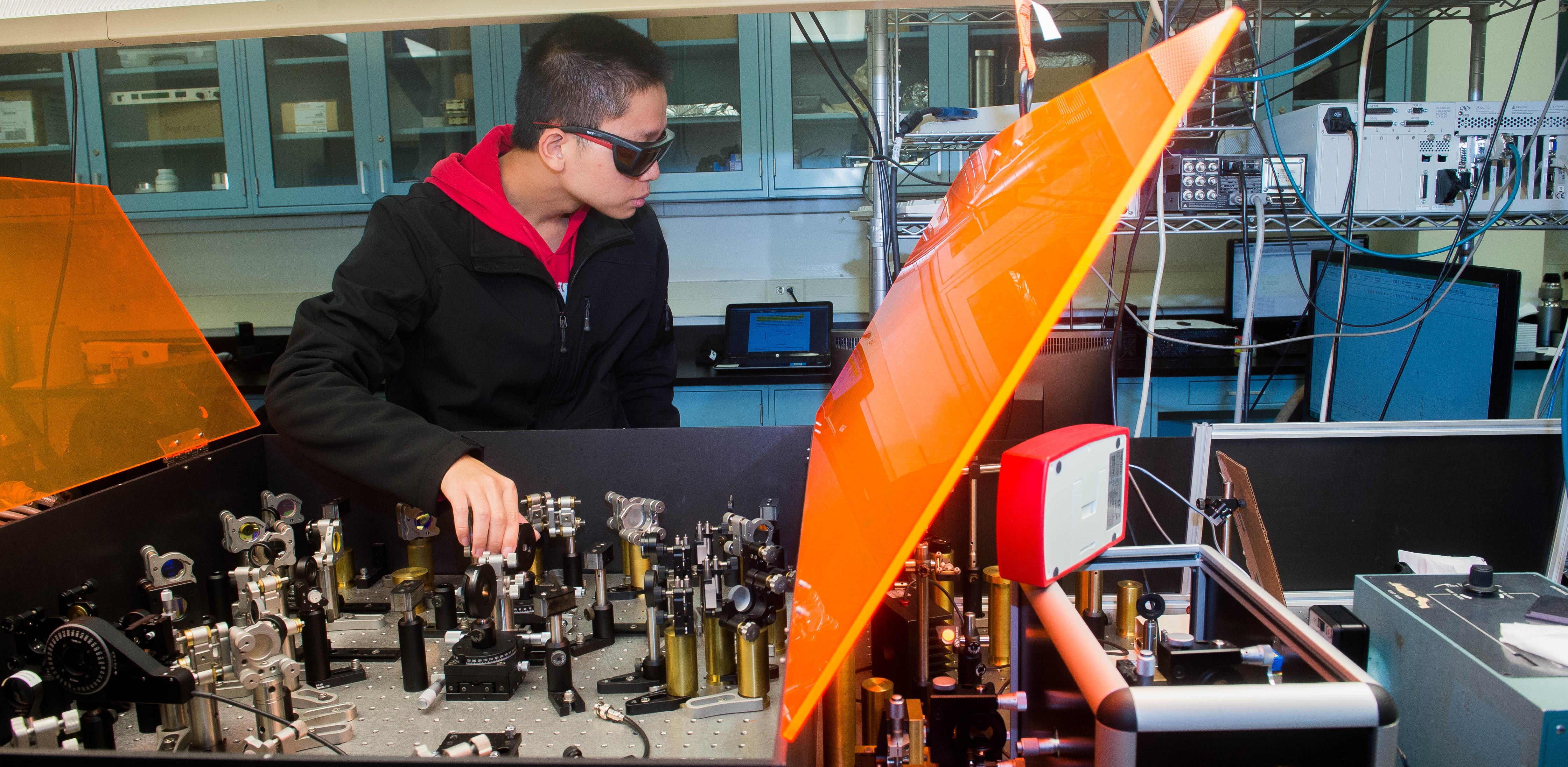
The University of Pittsburgh's internationally recognized Department of Physics and Astronomy has long been an important leader at the frontier of science and, with 500 PhD alumni, has launched many distinguished careers. The current Department leads research efforts that promise an ever-deeper understanding of the Universe. From elementary particles to the largest galaxy clusters, in cutting-edge technological innovation and the intersection of quantum and classical physics, our faculty and students explore the fundamental laws of nature. Students may expect to pursue research that influences many fields, including biology, mathematics, medicine, chemistry, engineering, and computer science.
Astrophysics and Cosmology
The Astrophysics and Cosmology group researches a wide range of phenomena visible in the sky,with a current emphasis on supernovae, quasar absorption systems, the growth galaxies and large-scale structure, and the properties and evolution of the universe. We are leaders in several major astronomical survey efforts.
Biological Physics
The Biological Physics group aims to uncover the physical principles governing life, with current focuses on dynamics and collective behaviors in bacterial and mammalian cells, and questions related to bacterial motility, drug resistance, tissue organization, and immunology.
Condensed Matter Physics
The Condensed Matter Physics group has wide-ranging interests,especially the discovery and control of new quantum phenomena in solid state systems.
Physics Education Research
The Physics Education Research group combines concepts from psychology and cognitive theory with experimental data on student learning to improve the teaching of physics and astronomy.
Particle Physics
The Particle Physics group aims to understand the fundamental constituents of matter by searching for new subatomic particles, by measuring precisely the properties of known particles and interactions, and by constructing and testing theories of particle physics beyond the standard model.
Facilities
The department's facilities range from cutting-edge locations like The Petersen Institute of NanoScience and Engineering (PINSE) to high-precision machine, glass, and electronics shops.





